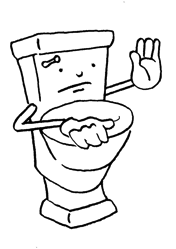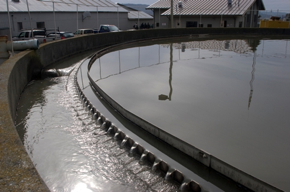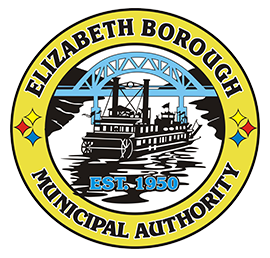To Flush or Not to Flush?
Clean water is critical to sustaining life and health, yet people often take for granted the flow of water into and out of their homes and businesses. Where does it go after we flush the toilet, empty the sink, take a shower or do laundry?

Wastewater drains into a community’s sanitary sewer system, an underground network of pipes that leads to the wastewater treatment plant. At the wastewater treatment plant, the used water is “cleaned” by several treatment processes and returned back to the environment to be used over and over again.
Sewers are designed to take away used water from sinks, baths, showers, laundries and toilets. Flushing away “unflushable” items such as garbage, paper towels and disposable wipes causes blockages in sewers, which leads to backups and adds to the cost of operating and maintaining your sewers and the treatment plant.

“Disposable” does not mean flushable.
Disposable is a product for single use that can be recycled or thrown away after it is used. Most baby wipes and adult wipes are not flushable because they stay intact in water and don’t disintegrate like toilet paper. They should be thrown away in a trashcan. Other items such as rags, towels, diapers, kitty litter, cigarette butts and unused medicines should be disposed of properly – in the trash!
